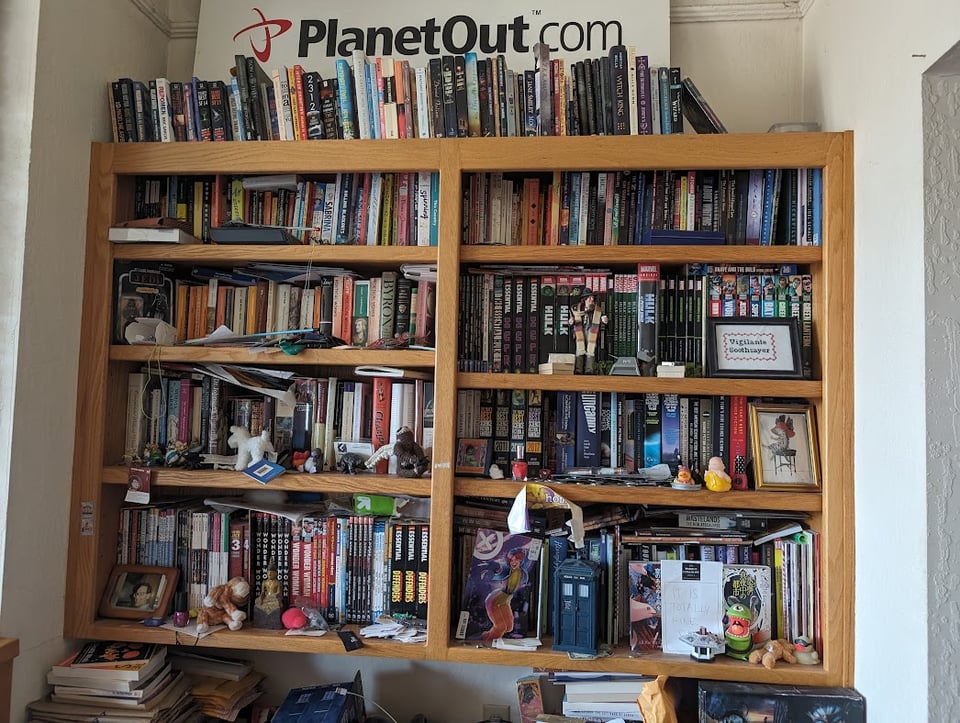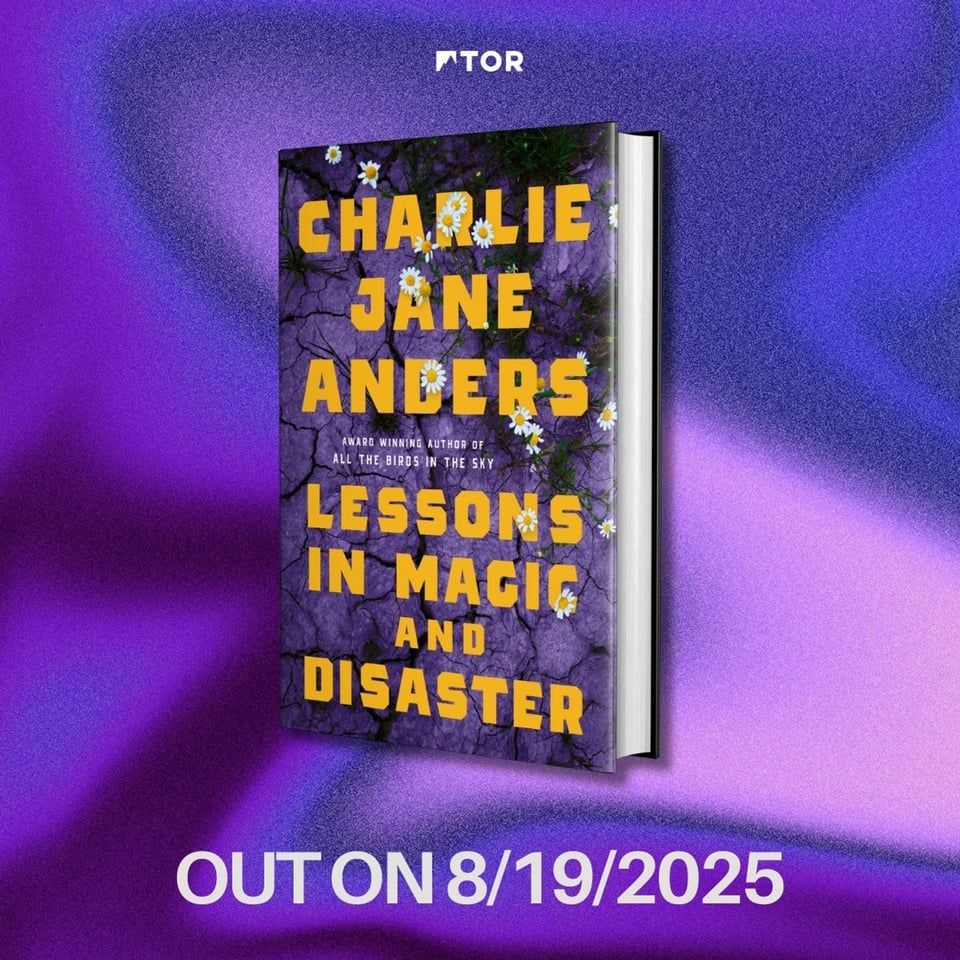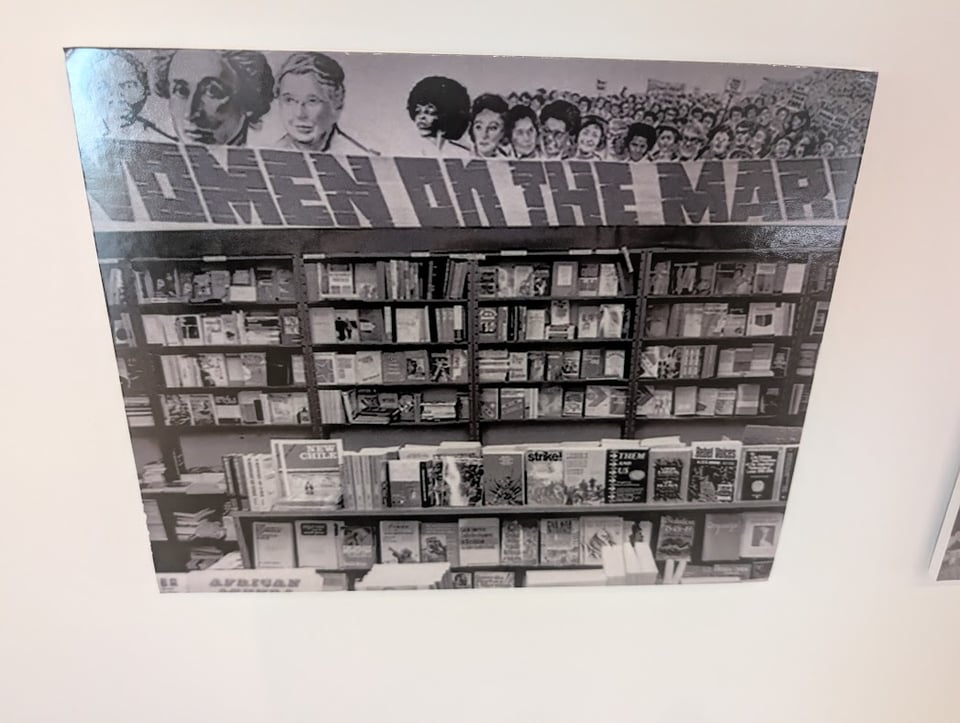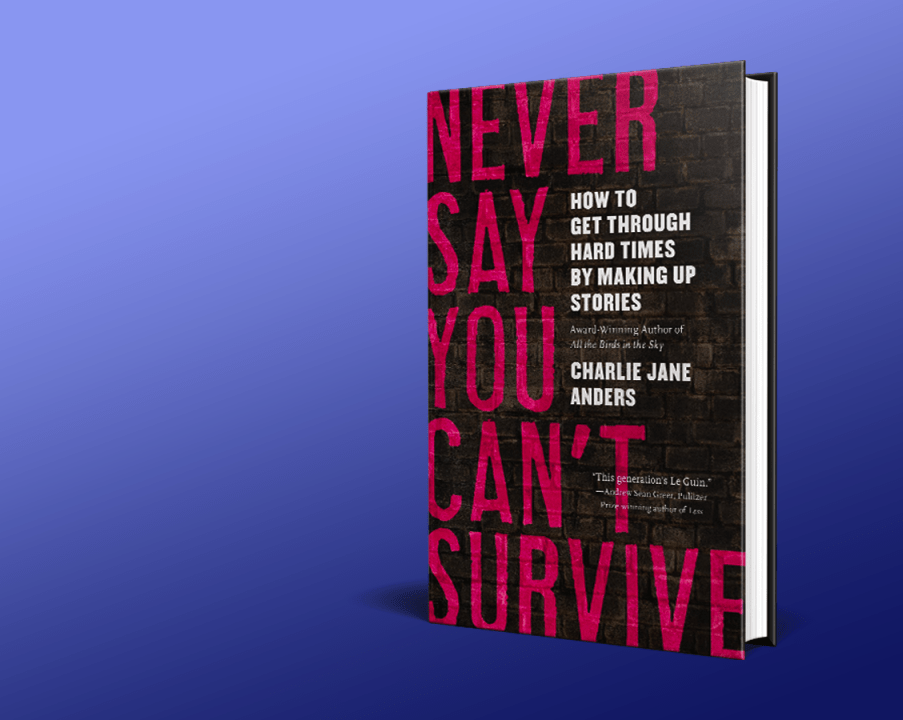Can You Write a Book That Speaks to This Terrible Time?
Nah. You can't ever write a book that speaks to a particular moment in history. Sorry.
This is mostly due to the timescales of writing and publishing. No matter how fast you type, you'll still take a minute to put together a story and polish it up to a publishable standard, and then the publishing industry will take anywhere from nine months to a few years to get your book into the world. But also, it's just hard to crystallize a particular set of circumstances and formulate a story that responds to them in a meaningful fashion — stories don't always work that way, and the best stories are often the ones that come out of left field and result from some personal obsession on the part of their author.
Sure, you occasionally get a dystopia that crystalizes something about real-life systems of power, but that’s almost as rare as winning the lottery. I’ve read countless dystopian novels, and the vast majority feel either rote or ridiculous.

Nevertheless, any terrible political event or series of events will have books that appear especially relevant and helpful. It's just that you can't really make this happen on purpose. And if you try, you’ll probably be writing historical fiction by the time your book is published.
I've mentioned this before, but in November 2016 I was in a writer's room for a TV show. The day after election day, we all sat stunned, realizing that all of the story beats we had come up with now had a completely different meaning than we’d thought they had.
So inevitably, I've had to rethink a bunch of my own books in response to the recent presidential election, considering how they might or might not respond to what is going to be a very scary time for many of us. I apologize if this feels self-indulgent — I see it is part of being an artist, thinking about how my work operates in the world, and how how it may or may not serve the needs of my readers.

First and foremost, I now have to think differently about how to talk about Lessons in Magic and Disaster, my book that comes out in August. The story is extremely personal and intimate: it is about a young witch who teaches her grief-stricken mother how to do magic. There's also a Dark Academia subplot that looms pretty large, involving the main character’s PhD thesis about a mysterious novel from 1749, and the scandal it hints at.
I wrote a big chunk of Lessons in Magic and Disaster in 2020, during lockdown, and it is very much a response to the trauma and grief from that year, even if it does not comment directly on those things. The main character, Jamie, is trans, and her mother is a lesbian mourning the death of her wife. The 18th century authors who become important in the Dark Academia subplot are also queer-coded.
So as I revised Lessons in Magic and Disaster, it became very much a book about the queer struggle for liberation going back centuries. And also about queer generational trauma and the way that we carry it forward but also trial to heal from it. Because my protagonist is a trans person who teaches undergrads, there is also some stuff in there about right wing harassment and bullying, I’m afraid.
I have no idea how any of this will feel in August — I have a hard enough time imagining where trans people's rights will be by then, in general. It feels like the other side of a singularity.
So now I have to think about the meaning of Lessons in Magic and Disaster in this new context, and whether people will find it meaningful during such a dark time. I think the book does have something to say about the tug of war between living your dreams and healing your wounds. I think it very speaks to our need for literature and poetry and the humanities generally, at a time when those things are under attack. And even though it is not a book about capital-p Politics, I think it is animated by a unquenchable thirst for queer liberation. It's definitely a book about building better families and learning to survive.
I honestly have no idea what Lessons in Magic and Disaster will mean to anybody, because you can never know that about your own book.

And then there's the novel I am in the middle of finishing right now, which I hope will come out in 2026. Without giving anything away, it's about a group of trans people in an extreme situation involving aliens. Because this book takes place in the real world, and I don't have the luxury of denial, I am including some transphobia and a sense that many people can easily be whipped up into a transphobic mob at a moment's notice. I did not write this book thinking it would come out during an anti-trans regime — although of course I knew that was a possibility.
The good news is, I'm working on the ending right now. So I have a chance to craft an ending that acknowledges just how scary this stuff is, and offers a modicum of hope and encouragement during what may be a very dark time indeed. The bad news is as hard as it is for me to imagine how trans people will be doing in August 2025, it's much harder for me to imagine where we’ll be in 2026.
Really, all I can do is think about what I personally will want to hear a couple years from now, and do my best to put that into a book that I hope will comfort people. I had some ideas for this ending back in late October, but the ending I am crafting now is inevitably going to be more upbeat and positive and joyful, because that's the only ending I can imagine making sense in this new world. Luckily, it also fits with the story I've been telling this whole time. I think one huge difference is that trans love and acceptance were always at the root of this book, but now I feel the need to foreground them more because apparently we cannot ever take these things for granted.
Then there are the books I already wrote and published, which suddenly mean something different than they did before.
My young adult trilogy is all about queer teenagers fighting space fascists using love and creativity and art and music and chosen family and the power of always knowing someone's correct pronouns. My novella Rock Manning Goes For Broke is about a fascist takeover of the United States and the slapstick performer who gets caught up in it. A lot of my short stories are about communities coming together to survive in the midst of dark times. (And I did write one short horror story about trans people being given a nightmarish version of conversion therapy, “Don’t Press Charges and I Won’t Sue.”)
But there's one book of mine that I was a bit startled to see a lot of people suddenly talking about — though perhaps I shouldn't have been.

Back in 2020, I started writing a book about how to use creative writing to survive a scary moment. It was serialized online and then published in book form in 2021 as Never Say You Can't Survive: How to Get Through Hard Times by Making Up Stories. I had believed that 2020 would be a uniquely terrible year, due to the pandemic and a bunch of other stuff, and I sort of hoped people would continue finding my book useful after that. But the book has continued to be used in classrooms, and people have kept mentioning it from time to time. And in the past couple of weeks, I've been caught off guard by the number of people saying that they are going back to it. Or reading it for the first time. This isn't the moment I wrote that book to speak to, but it is more similar than I would like.
As I wrote today in Assigned Media’s Stay With Us series, I am finding once again that crafting stories and getting to know imaginary people of my own creation really is the best balm to my soul during a an unspeakably terrible time. I've been losing myself in writing more and more the past couple of weeks, and it’s been a total refuge. I feel so helpless and lost, except when I’m putting words down.
I'm honestly not sure I could write something like Never Say You Can't Survive now if I set out to. The past four years have been a lot, to say the least. So it makes me really happy to know that it's still out there and people can still find it, and that all of the things I wanted to say to people during that time are still being heard now. I don’t have to come up with a ton of words of encouragement today, because past me already did that.
That's really the magic of books, I guess. They continue to exist as times change. And maybe it’s a good thing that every time you pick them up, they mean something new.
My Stuff
ICYMI, here are my picks of the best science fiction and fantasy books of 2024, in the Washington Post. (Gift link, registration required.)
If you would like to pre-order Lessons in Magic and Disaster, you will be doing me a huge favor and also ensuring that you’ll be getting a book that I’m super proud of. You can get it from Amazon, B&N and Bookshop.org. But if you want a signed/personalized/doodled version, you can pre-order from Green Apple Books, who ship all over the USA.